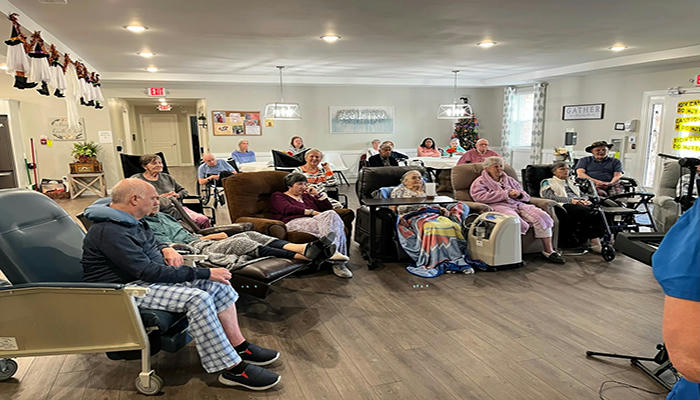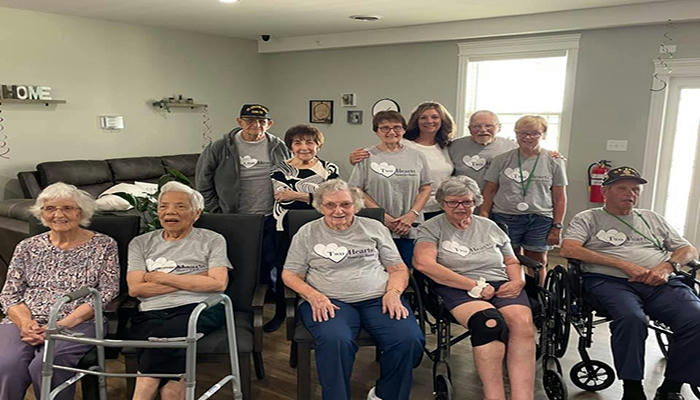Choosing a Memory Care Facility for Your Loved One: A Comprehensive Guide
As Alzheimer’s disease and other forms of dementia become increasingly common, many families face the difficult decision of whether to move a loved one to a memory care facility. These specialized communities are designed to provide the support, safety, and care that individuals with memory impairments need. Making the right choice is crucial to ensuring your loved one’s dignity, quality of life, and well-being. This guide will help you understand memory care facilities, evaluate your options, and make an informed decision.

What Are Memory Care Facilities?
Memory care facilities are residential communities specifically designed for individuals with Alzheimer’s, dementia, and other cognitive impairments. Unlike traditional assisted living or nursing homes, these facilities focus on creating a secure, supportive environment tailored to the unique needs of those with memory loss.
Key Features of Memory Care Facilities
•24/7 Supervision: Residents receive round-the-clock care and assistance with daily activities.
•Specialized Staff: Caregivers are trained in dementia care, enabling them to manage the unique challenges of memory loss effectively.
•Secure Environment: Facilities are designed to prevent wandering, a common concern for individuals with dementia.
•Structured Activities: Programs are tailored to stimulate cognitive function, promote social interaction, and enhance overall well-being.
Benefits of Memory Care Facilities
1. Enhanced Quality of Life
Memory care facilities provide structured routines and engaging activities that help residents maintain cognitive function and social connections. These programs foster a sense of community and belonging, which can significantly improve emotional well-being.
2. Health and Safety
With access to specialized medical care and 24/7 supervision, residents receive timely interventions and support. This reduces the risk of accidents, ensures proper medication management, and alleviates the burden on family caregivers.
3. Peace of Mind for Families
Knowing that your loved one is in a safe, supportive environment allows you to focus on spending quality time together rather than managing daily care tasks.
When Is It Time for Memory Care?

Recognizing when a loved one needs memory care can be challenging. Here are some signs to consider:
•Safety Concerns: Frequent wandering, falls, or difficulty managing daily tasks like cooking or bathing.
•Behavioral Changes: Increased agitation, confusion, or aggression.
•Declining Health: Difficulty managing medications or worsening physical health.
•Caregiver Burnout: If family caregivers are overwhelmed or unable to provide adequate care.
If you notice these signs, it may be time to explore memory care options.
How to Choose the Right Memory Care Facility
1. Evaluate Staffing and Training
•Staff-to-Resident Ratio: A higher ratio ensures personalized attention and care.
•Specialized Training: Ensure staff are trained in dementia care and understand the unique needs of residents.
2. Assess the Facility Environment

•Safety and Cleanliness: Look for a clean, secure, and well-maintained environment.
•Homelike Atmosphere: A warm, welcoming setting can help residents feel more comfortable.
•Private and Communal Spaces: Ensure there are areas for social interaction as well as private accommodations for personal space.
3. Review Programs and Activities
•Cognitive Stimulation: Activities like puzzles, art therapy, and memory games can help maintain mental sharpness.
•Physical Activities: Exercise programs tailored to residents’ abilities promote physical health.
•Social Engagement: Group activities and events foster a sense of community.
4. Visit and Observe
•Tour the Facility: Pay attention to staff-resident interactions and the overall atmosphere.
•Ask Questions: Inquire about care plans, emergency protocols, and how the facility handles behavioral challenges.
•Talk to Residents and Families: Their experiences can provide valuable insights.
Financial Considerations

Memory care can be expensive, with the median monthly cost in the U.S. reaching approximately $6,200. Here are some ways to manage the financial burden:
1. Personal Financing Options
•Savings and Investments: Use personal savings, retirement accounts, or investment portfolios.
•Home Equity: Consider selling your home, taking out a reverse mortgage, or using a Home Equity Line of Credit (HELOC).
•Life Insurance: Some policies can be sold or surrendered for cash value.
2. Public Assistance Programs
•Medicaid: This federal program may cover some memory care services, though it typically does not cover room and board.
•Veterans Benefits: Programs like the Aid and Attendance pension provide financial assistance for veterans and their spouses.
•Social Security Disability Insurance (SSDI): Available for younger individuals with disabilities.
3. Non-Profit and Community Resources
•Alzheimer’s Association: Offers information on local resources and funding options.
•Area Agencies on Aging: Can help identify state-specific financial aid programs.
Involving Your Loved One in the Decision
While the decision to move to a memory care facility is often challenging, involving your loved one in the process can help ease the transition. Have open, honest conversations about their preferences, concerns, and feelings. If possible, visit potential facilities together to ensure they feel comfortable with the choice.
Conclusion
Choosing a memory care facility for your loved one is a significant decision that requires careful thought and planning. By understanding the benefits of memory care, evaluating facilities based on staffing, environment, and programs, and exploring financial options, you can make an informed choice that prioritizes your loved one’s well-being.
Take the time to research and visit potential facilities, ask questions, and involve your loved one in the process. With the right memory care facility, you can ensure your loved one receives the compassionate, specialized care they deserve while maintaining their dignity and quality of life.
Final Tip: Start your search early to allow ample time for research and decision-making. This will help you find the best facility and ensure a smoother transition for your loved one.
